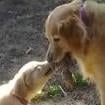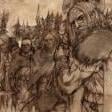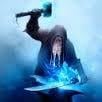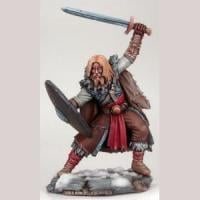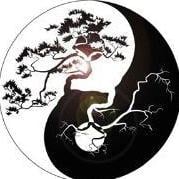-
Posts
2,088 -
Joined
Profile Information
- The Poetess of the Nennymoans
-
Location
Under the See
Recent Profile Visitors
12,961 profile views
ravenous reader's Achievements

Council Member (8/8)
-
Sandy Clegg started following ravenous reader
-
 ravenous reader reacted to a post in a topic:
Puns and Wordplay
ravenous reader reacted to a post in a topic:
Puns and Wordplay
-
 ravenous reader reacted to a post in a topic:
Puns and Wordplay
ravenous reader reacted to a post in a topic:
Puns and Wordplay
-
 ravenous reader reacted to a post in a topic:
Puns and Wordplay
ravenous reader reacted to a post in a topic:
Puns and Wordplay
-
 ravenous reader reacted to a post in a topic:
Puns and Wordplay
ravenous reader reacted to a post in a topic:
Puns and Wordplay
-
 Springwatch reacted to a post in a topic:
Rare Words and Expressions
Springwatch reacted to a post in a topic:
Rare Words and Expressions
-
 ravenous reader reacted to a post in a topic:
A Sword Without a Hilt
ravenous reader reacted to a post in a topic:
A Sword Without a Hilt
-
 ravenous reader reacted to a post in a topic:
A Sword Without a Hilt
ravenous reader reacted to a post in a topic:
A Sword Without a Hilt
-
 ravenous reader reacted to a post in a topic:
A Sword Without a Hilt
ravenous reader reacted to a post in a topic:
A Sword Without a Hilt
-
 ravenous reader reacted to a post in a topic:
A Sword Without a Hilt
ravenous reader reacted to a post in a topic:
A Sword Without a Hilt
-
 ravenous reader reacted to a post in a topic:
A Sword Without a Hilt
ravenous reader reacted to a post in a topic:
A Sword Without a Hilt
-
 Sandy Clegg reacted to a post in a topic:
Rare Words and Expressions
Sandy Clegg reacted to a post in a topic:
Rare Words and Expressions
-
 Sandy Clegg reacted to a post in a topic:
Rare Words and Expressions
Sandy Clegg reacted to a post in a topic:
Rare Words and Expressions
-
 ravenous reader reacted to a post in a topic:
Puns and Wordplay
ravenous reader reacted to a post in a topic:
Puns and Wordplay
-
 Sandy Clegg reacted to a post in a topic:
Recommended: new 'Wall Origin' theory
Sandy Clegg reacted to a post in a topic:
Recommended: new 'Wall Origin' theory
-
 Wizz-The-Smith reacted to a post in a topic:
Recommended: new 'Wall Origin' theory
Wizz-The-Smith reacted to a post in a topic:
Recommended: new 'Wall Origin' theory
-
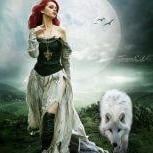
Recommended: new 'Wall Origin' theory
ravenous reader replied to Sandy Clegg's topic in General (ASoIaF)
I like @Voice’s theory regarding the ward beneath the Wall — which he already brilliantly argued so many years ago was formed by the trees — not Melisandre, being responsible for having zapped Orell’s/Varamyr’s eagle as the skinchanger transgressed the ward by flying too close to the Wall, after wandering too far south due to becoming disoriented in the midst of the battle. The eagle was immolated as if by inverse lightning rather than frozen, having flown too close to the invisible boundary extending perpendicularly above the Wall. If the ward extends above the Wall, then it functions much like an invisible electric fence repels dogs, implying that it’s primary purpose is indeed to block, even consume, practitioners of magic, rather than just preserving the cold. -
 Wizz-The-Smith reacted to a post in a topic:
Rare Words and Expressions
Wizz-The-Smith reacted to a post in a topic:
Rare Words and Expressions
-
 Wizz-The-Smith reacted to a post in a topic:
Rare Words and Expressions
Wizz-The-Smith reacted to a post in a topic:
Rare Words and Expressions
-
'll show you." He moved through the garden, gathering up twigs and sticks and shaking the snow from them. When he had enough, he stepped over both walls with a single long stride and squatted on his heels in the middle of the yard. Sansa came closer to watch what he was doing. * "Why would Petyr lie to me?" "Why does a bear shit in the woods?" he demanded. "Because it is his nature. Lying comes as easily as breathing to a man like Littlefinger. You ought to know that, you of all people." She took a step toward him, her face tight. "And what does that mean, Lannister?" * And of late he had often found himself dreaming of snow, of the deep quiet of the wolfswood at night. And yet, the thought of leaving angered him as well. So much was still undone. Robert and his council of cravens and flatterers would beggar the realm if left unchecked … or, worse, sell it to the Lannisters in payment of their loans. And the truth of Jon Arryn's death still eluded him. Oh, he had found a few pieces, enough to convince him that Jon had indeed been murdered, but that was no more than the spoor of an animal on the forest floor. He had not sighted the beast itself yet, though he sensed it was there, lurking, hidden, treacherous.
-
Song: “Sigh no more, ladies, sigh no more” BY WILLIAM SHAKESPEARE (from Much Ado About Nothing) Sigh no more, ladies, sigh no more. Men were deceivers ever, One foot in sea, and one on shore, To one thing constant never. Then sigh not so, but let them go, And be you blithe and bonny, Converting all your sounds of woe Into hey nonny, nonny. Sing no more ditties, sing no more Of dumps so dull and heavy. The fraud of men was ever so Since summer first was leafy. Then sigh not so, but let them go, And be you blithe and bonny, Converting all your sounds of woe Into hey, nonny, nonny.
-
Mr_E_Knight started following ravenous reader
-
ravenous reader started following Phylum of Alexandria
-
ravenous reader started following Nadden
-
ravenous reader started following Sandy Clegg
-
ravenous reader started following Evolett
-
ravenous reader started following Braavosi Citizen
-
ravenous reader started following Heresy 238 The Song of Sansa the Snow Queen
-
Queen Allyria started following ravenous reader
-
ravenous reader started following Stormy4400
-
Dorian, your reputation in the forum has been rated 'mostly harmless'...LOL (perhaps it's time to revise your desire for 'revenge')!
-

[Poll] How would you rate episode 704?
ravenous reader replied to Ran's topic in E04: The Spoils of War
Why would Arya say the line 'that's not you,' if she wasn't Arya and hadn't said it to Ned in another context which she was recalling ironically in that moment, the rationale for which as explained to us by the writers themselves following the episode, just in case we had failed to appreciate their cleverness? How would the waif know enough about Arya to know to say that line to a wolf she'd never seen before in the middle of the woods with no one else to hear, feigning an emotion that never actually came to pass? Are you suggesting the waif has access to ALL of Arya's childhood memories, including every line she ever uttered to her father verbatim? (in the books, wearing a mask gives one access to very limited fragmentary flashes of memory of the previous inhabitant of the face; though similar symbolically, it's not qualitatively equivalent to skinchanging). If this is the waif and she's nevertheless using that line, because D&D think it's a catchy callback for their own 'meta-' purposes, then the whole thing is just silly. Fooling a direwolf in this manner wouldn't be possible in the books, but who knows with the dastardly droll D's -- I've given up trying to pry apart their (increasingly non-existent) internal logic (the circumstances surrounding Bran's recent (d)evolution is a case in point), although I sincerely admire your intelligent efforts to bring coherence to their gotcha moments! In the books, it's quite clear that animals in general are not fooled by the masks of faceless men: On the other hand, Melisandre did succeed in fooling Ghost somehow with her 'Bene Gesserit Voice'-like trick.- 182 replies
-
- poll
- game of thrones
-
(and 3 more)
Tagged with:
-
Of course you're free to defend your appreciation of D&D's script -- just as I'm entitled to cast a more critical eye upon it. It's not about 'right and wrong'; it's about 'logical and illogical' -- and by that distinction I'm not referring to you being illogical, but to the gaping holes in D&D's story. If their script were so good, they wouldn't need to explain the story after the fact, nor would they need you to kindly explain it on their behalf (likewise, if the chemistry between the lead actors were so convincing, they wouldn't have to tell us that the characters find each other attractive...). Talking about the story is not the same thing as telling it. If it made sense, it would speak eloquently for itself as written, without all this exposition on the sidelines; and all these recent Bran threads and videos aghast at the change in the character would not exist. People are perplexed, because the narrative is disjointed and perplexing. That said, in principle I can understand, however, why being hooked up to the weirnet, the collective hivemind tree consciousness, would cause one to lose ones humanity over time. In fact, I've explicitly described GRRM's peculiar characterisation of greenseeing using the metaphor of drowning or dissolving in a fluid medium, resulting in the dissolution of boundaries across person, time and space, and therefore threatening ones previous identity. Currently, Bran is adrift in that 'green sea'. Who's to say what a 'normal' response is? What I can judge, however, is that there was nothing grossly 'abnormal' about Bran's reactions, facial affect, speech patterns, and general social demeanor back then (it's precisely because nothing stood out that we weren't having this conversation back then, were we?). For example, he made more eye contact back then and his verbal responses were more appropriate to the conversation. He was certainly not blunted the way he is now. He may not have smothered his uncle in kisses, but no one would deny he was excited to see him and displayed curiosity in his uncle's story. He was certainly not cruel to Meera. Now, however, Bran does not seem to be paying attention to what is happening in front of him, being elsewhere occupied in his thoughts! I surmise GRRM in his stinginess when it comes to giving away his ideas, being unwilling to rain on his own parade, has refrained from coaching D&D through the logic of his thought process, depriving them of a cohesive plot. He has only supplied them with the bare minimum of certain isolated 'end-goal' posts, one of which is probably that Bran 'goes over to the dark side' and has some sort of twisted relationship to the Night's King -- so this is D&D's slapdash interpretation of how that happened. I have no doubt that GRRM will provide a more satisfying and nuanced account, should he ever get around to writing it.
- 214 replies
-
- spoilers
- game of thrones
-
(and 4 more)
Tagged with:
-
No it doesn't. He was not emotionally blunted nor socially dysfunctional in season 6 episode 6 when he met his uncle Benjen with Meera, at which point he already had all the world's knowledge at his fingertips -- in the short trip from the Wall to Winterfell, he's *somehow* acquired the emotional sensibility of an autist/psychopath?! I understand that you're buying into D&D's convoluted explanations given in retrospect to fill in the gaps left by their lack of continuity, but the fact remains there's precious little attention paid to logical character development and narrative cohesion. Let's just enjoy it for what it is, without having to pretend we're watching the unfolding of anything approaching meaningful storytelling anymore! How interesting -- and great question there at the end! You're not the only one to have thought of Dune in connection with the greenseers, so I don't think you are 'going off the rails' at all. Fittingly, even one of my own threads on the book forum is entitled 'the killing word'!
- 214 replies
-
- spoilers
- game of thrones
-
(and 4 more)
Tagged with:
-
ravenous reader changed their profile photo
-
The search function has also disappeared!
-
And in the end -- it's all about asking/giving 'a penny for your thoughts...' Because it's about the price paid for the acquisition of knowledge!
-
Yeah, making someone laugh and tickling someone has that double meaning.
-
That's fascinating. I wish I knew more about chess, since there are probably multiple hidden chess motifs and moves we might identify. For example, it's been drawn to my attention that if a pawn crosses the board it can become a queen (essentially adding an extra queen to a game which previously only had two), which if you think about it is what Baelish intends doing with Sansa his prime piece in the game! Regarding 'rooks' and 'rookeries', great catch connecting (scare)crows to chess! Like 'rooks' in chess, the crow or scarecrow figures also come in 'black' and 'white,' e.g. the black vs. white ravens, or the black Night's Watch brothers facing off against the white (br)Others on the other side of the board ...'under the sea the crows are white as snow...' Maybe Bran is a bit of a chess grand master himself considering he's a greenseer for whom a powerful chess piece like the rook would be emblematic, considering his association with crows and broken towers struck by lightning and noting how he 'perches' like a raven, crow or scarecrow on the 'bridge connecting the second floor of the rookery with the fourth floor of the belltower...' That sounds like code to me for something of uncertain significance, perhaps even a checkmating chess move! Any ideas? I've read the rook is often instrumental in bringing about 'checkmate' in the chess endgame, which is precisely what we've been anticipating regarding Bran and his role in the impending Long Night/War for the Dawn. The 'bell tower' might symbolise the embattled King -- bells are often rung for the death of kings, executions, rebellions, a king under siege in the case of the Battle of the Bells, the transfer of power, etc. -- so 'sending a rook to the belltower' might be a checkmate move? Although the rook begins the game relatively hemmed in in its options, as the game progresses it acquires greater freedom of movement and becomes ever more deadly, perhaps reflecting Bran's progress from cripple to major player! In line with your scarecrow suggestion, rooks in chess have also been depicted as 'warders,' 'watchers' or 'beserkers' (wolfskin-wearing warriors associated with Odin) depending on the chess set, and fittingly in heraldic depictions the crenellated battlements may morph into horns, evoking @LmL's 'horned greenseers' and more specifically the outward-curving horned headdress of a court jester or fool such as Patchface, bringing us back to the scarecrow trilogy 'clever bird clever man clever fool'! That's a fun one! Do you think there might be an allusion to the whole red-on-black dragon vs. black-on-red dragon? A door is a kind of shield, herald or sigil, so painting a black dragon on a red door would seem to indicate illegitimacy. Is Dany illegitimate? Although I'm not sure why he's doing this, GRRM employs quite a few counterintuitive pathways of this sort -- 'long' vs. 'short' way; 'front' vs. 'back' door, etc. For example, there are two ways into Bloodraven's cavern -- the steep, direct route from south to north, or the flatter, roundabout route north and then backtracking south:
-
In addition to 'Tor' meaning gateway or portal, it can also mean 'scoring a goal' (e.g. in a game such as football=soccer) as well as being a 'fool' or 'idiot' in German. By kneeling to Aegon, Torrhen provided a gateway or free passage for the Targaryens to the North, which can be interpreted as a score by Aegon or Torrhen or both, depending on ones perspective (in this analogy, the Neck would be the entrance to the goal and Torrhen the goalie!). Certainly, GRRM does wish us to ponder whether refusing to yield is always the winning option when faced with the other alternative of perpetuating the 'bloodsport'. Although Torrhen no doubt spared his own people much bloodshed by this gesture, he was also inevitably derided for a fool on account of having relinquished his honor, crown and independence to the invaders. I like @Pain killer Jane's pun of 'Tor(he)n' (silent 'h') with 'torn,' whereby Torrhen was torn between his pride and his pragmatism. It's also ironic that in yielding -- which likely 'tore' him up personally -- he helped mend the fabric of the realm into one, this being a symbolic demonstration of GRRM's theme of personal sacrifice done for the greater good. I believe @Seams has also previously mentioned the pun of 'annealing' with 'kneeling,' so Torrhen kneeling can be interpreted as an important step in the forging of a peace, serving to knit the realm into one, the one who 'kneels' removing internal stresses and strengthening it just as one 'anneals' in the forging of a sword. Perhaps you ought to mention it to @Wizz-The-Smith. He does so love identifying a new hill, hollow preferably! @Tijgy has also pointed out that the name 'Brandon' can also mean a hill. So GRRM definitely wishes to identify those Starks with hills.
-
I like Sam as 'scared crow'/'scarecrow'! Indeed, Cressen was most brave swallowing that poison for the sake of the realm. Unfortunately, he didn't realise he couldn't use poison to fight against the dead.



